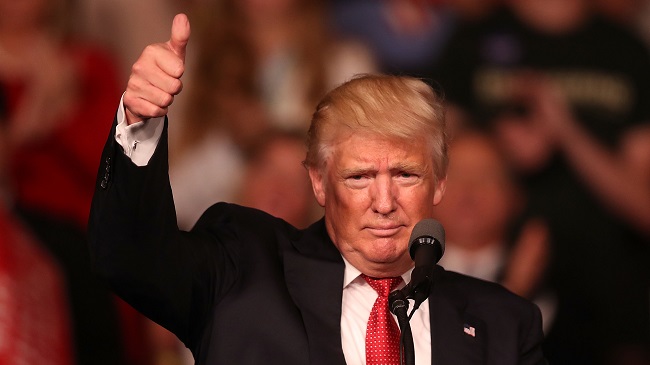
For as much criticism as Donald Trump receives these days, his charitable nonprofit group — the Donald J. Trump Foundation — garners even more. Especially since the New York real estate mogul turned presidential candidate is now the Republican nominee for the White House. With the news media’s constant back-and-forth with the Trump campaign over whether or not the top conservative will release his tax returns taking center stage, the Trump Foundation’s inner workings have largely been a mystery to the voting public. Or at least that was the case until the Washington Post published startling revelations about its practices.
According to reporter David A. Fahrenthold, Trump spent at least $258,000 of the nonprofit’s money — funds donated to the foundation by other people — to allegedly settle personal debts via the illegal practice of “self-dealing.” That’s over a quarter of a million dollars’ worth of donor money that was used not for philanthropy as intended, but for personal gain. And to make matters worse, that price tag combines just two of “four newly documented expenditures” discovered by Fahrenthold.
The first involved $120,000 in unpaid fines Trump’s Mar-a-Lago Club owed to the town of Palm Beach, Florida… because of a flagpole’s size:
In a settlement, Palm Beach agreed to waive those fines — if Trump’s club made a $100,000 donation to a specific charity for veterans. Instead, Trump sent a check from the Donald J. Trump Foundation, a charity funded almost entirely by other people’s money, according to tax records.
As for the remaining $158,000, Trump reportedly used foundation money to settle a dispute between a Trump golf course in New York and an unnamed plaintiff. Per tax records dug up by the Post, the check went to the charity of the accuser’s choosing — just like in Palm Beach.
The remaining two expenditures unearthed by the investigation? $5,000 Trump used in 2013 to purchase ads touting his hotel chain “in programs for three events organized by a D.C. preservation group” and $10,000 in 2014 for another portrait of the Donald.
“Self-dealing,” which is a big no-no in the eyes of the Internal Revenue Service (IRS), occurs whenever nonprofit leaders or affiliates use funds donated to their charitable organization by others for personal reasons. In the case of Trump’s apparent mishandling of Trump Foundation money, the Republican nominee used money his organization received from donors to pay off his own financial quandaries.
Neither the Trump presidential campaign nor the Trump Foundation responded to the Post‘s request for comment. Nor did the office of New York Attorney General Eric Schneiderman, which is currently investigating the foundation for payments made to Florida Attorney General Pam Bondi’s office to avoid punishment for violating IRS tax laws.
(Via the Washington Post)
